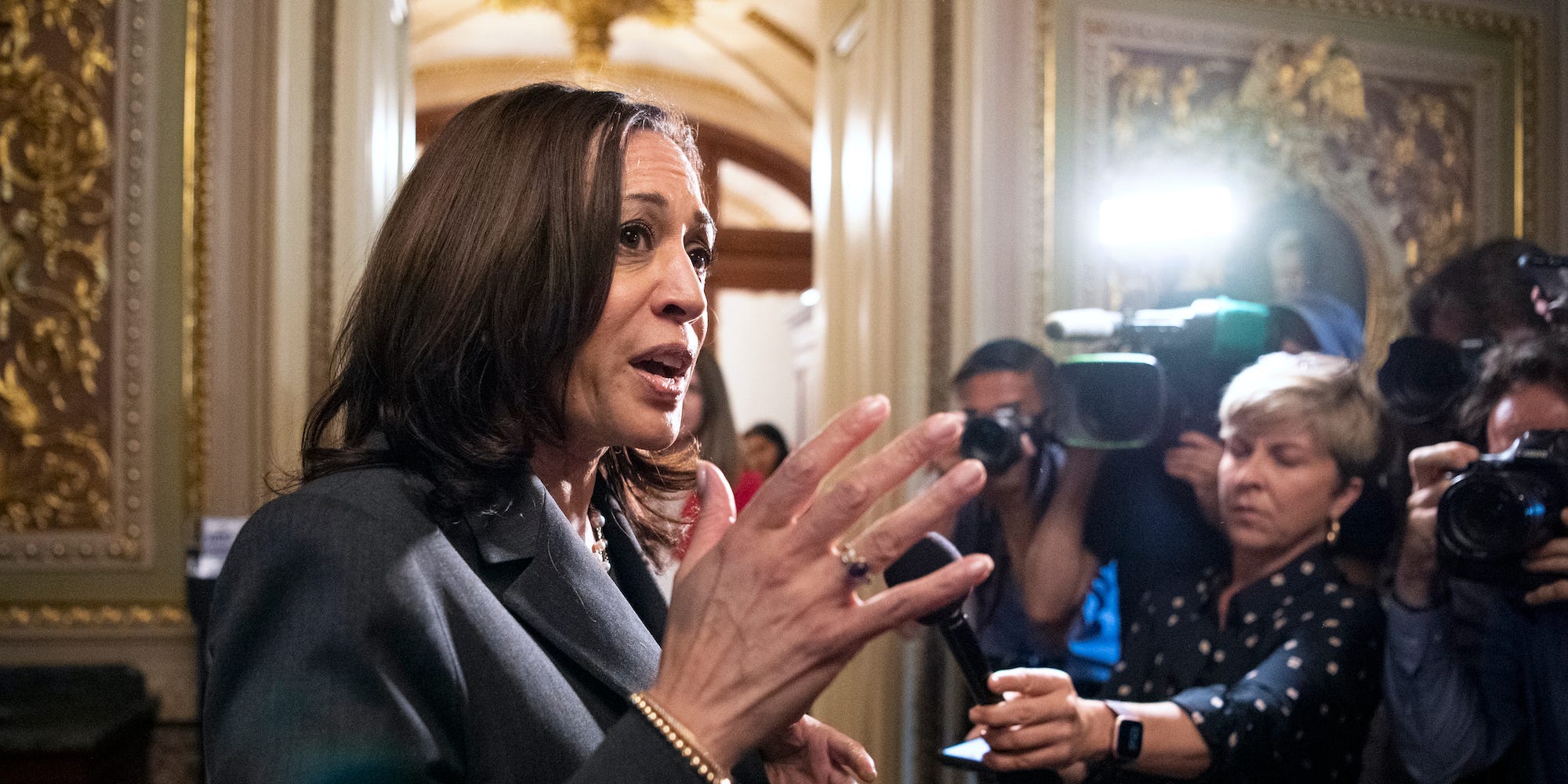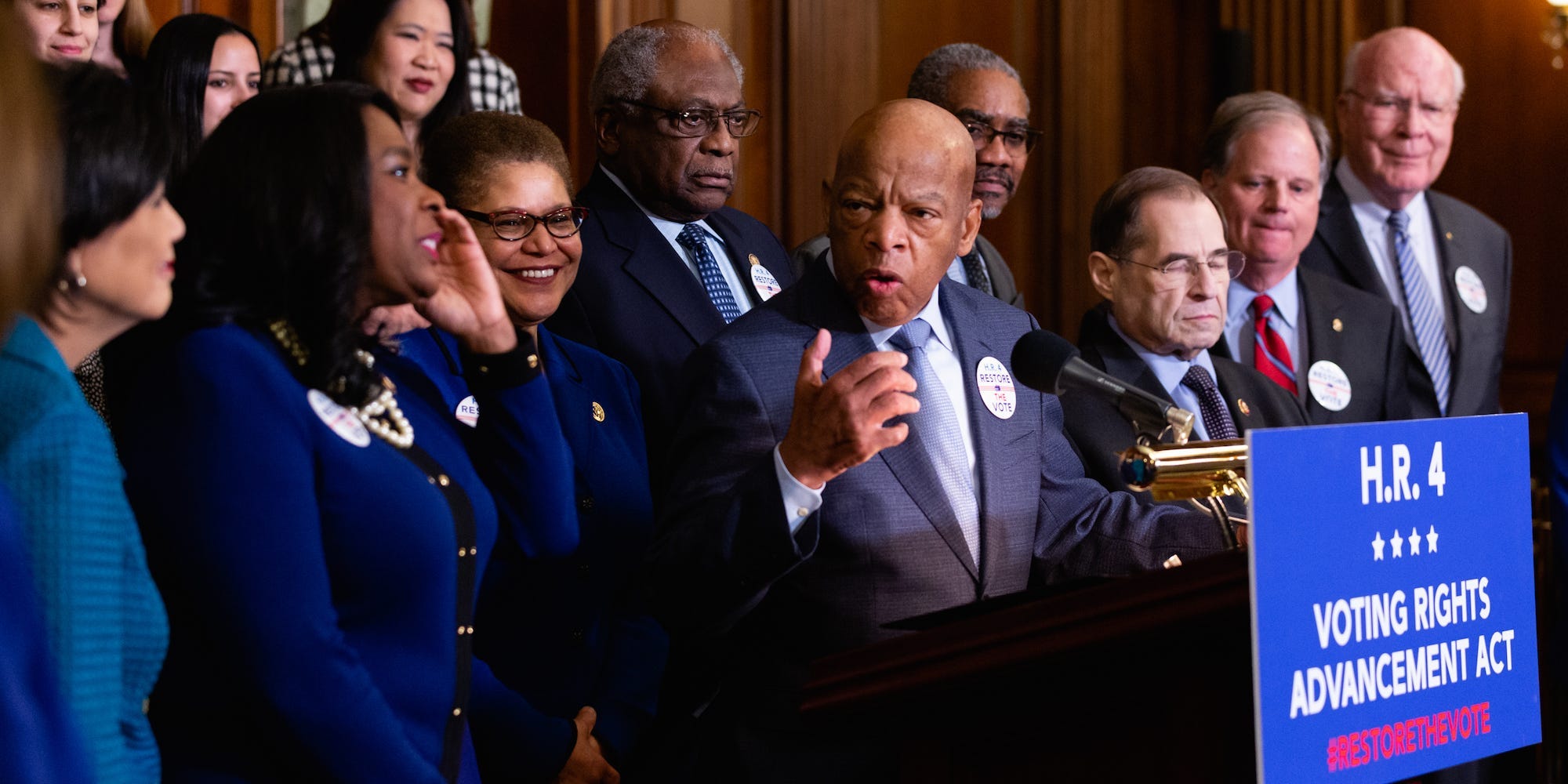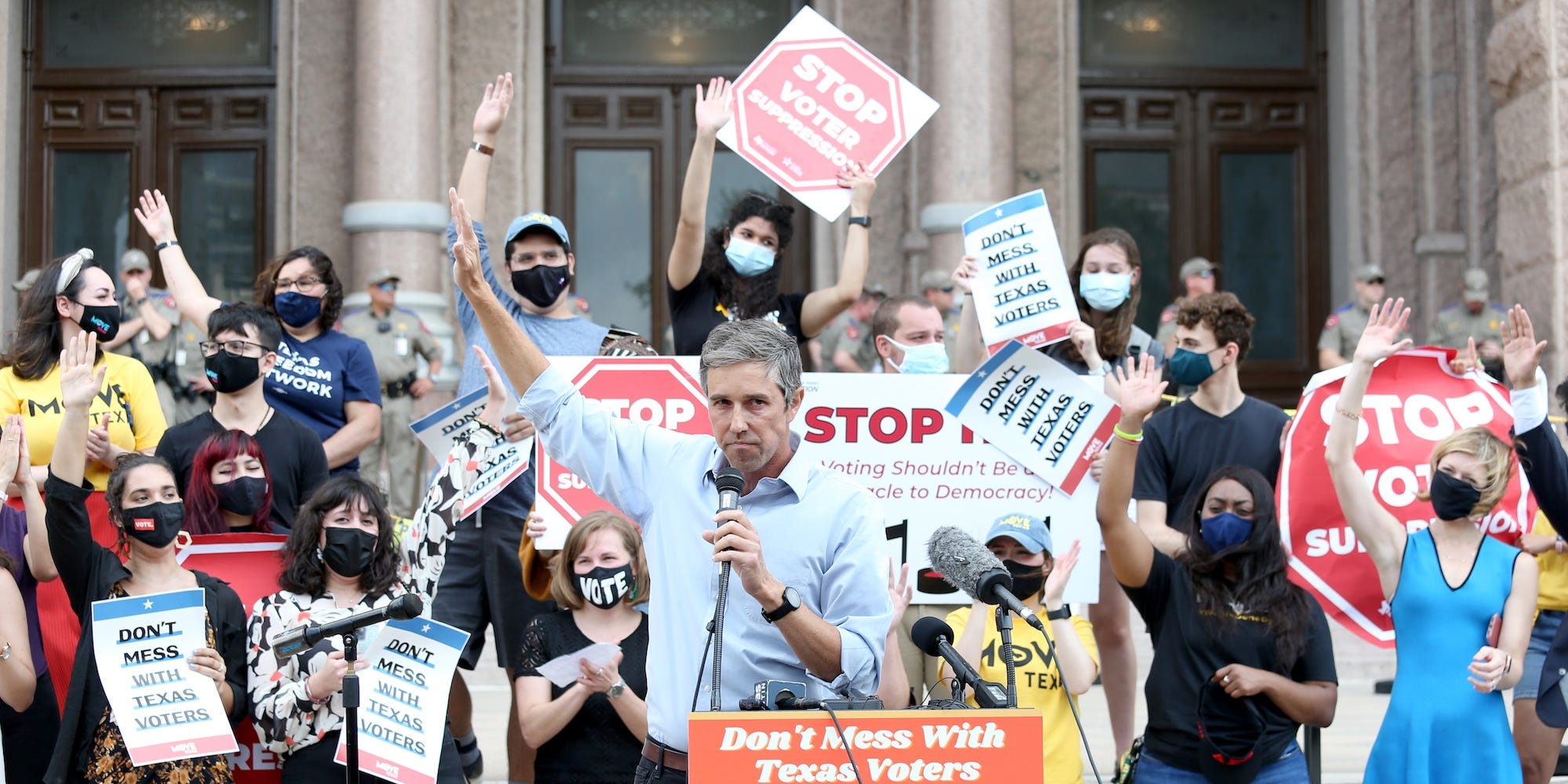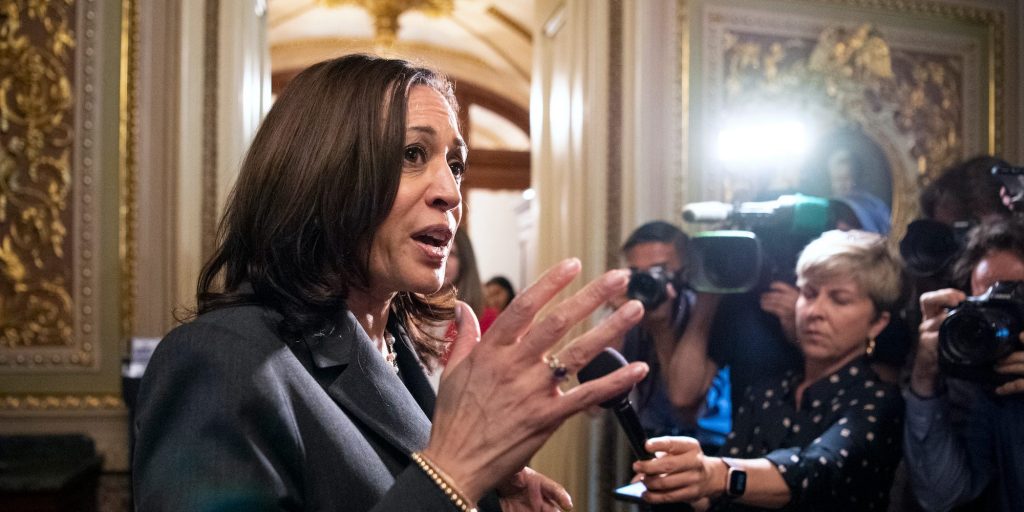
Caroline Brehman/CQ-Roll Call, Inc via Getty Images
- Democrats are regrouping after Republicans filibustered their flagship voting bill.
- House Democrats are also working on a bill to restore a key part of the Voting Rights Act.
- The fight for voting rights will continue on in state legislatures.
- See more stories on Insider's business page.
Senate Republicans blocked the For the People Act, Democrats' blockbuster voting rights and democracy reform legislation, in a widely-anticipated legislative filibuster on Tuesday.
But while Congress is headed out for Fourth of July recess this week, the fight over voting rights in 2021 is far from over both in Washington and around the country.
Here's what to look for next:
1. Senate Democrats are regrouping after a setback.
After S. 1 failed, Senate Majority Leader Chuck Schumer pledged that "it will not be the last time that voting rights comes up for a debate in this Senate."
Democratic Senators and Vice President Kamala Harris remained committed to passing voting rights legislation in some form while speaking to reporters Tuesday on Capitol Hill, but the specifics have yet to come together.
In the immediate term, the Senate Rules Committee will hold a number of hearings on voting rights and elections spotlighting voting in the battleground state of Georgia - including a possible field trip to the state itself.
Other legislative prospects in the Senate could include drafting a new version of S. 1, splitting up the legislation's key components into smaller standalone bills, and building on a compromise bill offered by Sen. Joe Manchin.
But the reality of the filibuster in a Senate divided 50-50 makes passing any legislation an uphill battle. It takes 60 votes to even advance to debate on a bill, meaning 10 Republicans would need to be on board.

Cheriss May/NurPhoto via Getty Images
2. The House is working on a bill to restore the Voting Rights Act.
The For The People Act isn't the only voting rights bill in Congress.
The House is currently holding hearings and building a congressional record on the John Lewis Voting Rights Advancement Act. The bill would restore federal preclearance under the Voting Rights Act, which required jurisdictions with a history of discrimination to seek federal approval before enacting new voting laws.
The Supreme Court struck down the formula used to determine which jurisdictions were covered under the act in its 2013 decision Shelby County v. Holder.
But the bill, which would establish a new coverage formula, won't be put to a vote just yet.
Unlike the For the People Act, Congress must compile a new, extensive legislative record for a renewal of the Voting Rights Act.
Republican Sen. Lisa Murkowski has endorsed the measure, but it's unclear if nine other Republicans would back it.
And any day now, the Supreme Court will rule in Brnovich v. DNC to determine whether two GOP-backed Arizona voting laws violate Section 2 of the Voting Rights Act, which bans racial discrimination in voting.

Gary Miller/Getty Images
3. The fight continues on in the states.
The most consequential and contentious fights over have played out in state legislative chambers and county governments, and will continue to do so as members of Congress map out their next steps.
Already this year, GOP-controlled states have introduced hundreds of laws and passed at least 20 that impose new restrictions on voting and the election administration process.
The next big showdown will be in Texas, which will be taking up a major GOP-backed bill that would impose new voting restrictions and criminal penalties for election officials in a special legislative session set for July 8.
House Democrats staged a dramatic Memorial Day walkout to deny the quorum necessary vote on the legislation, Senate Bill 7, and run out the clock in the regular session, setting the legislature up for another high-stakes battle over the law.

